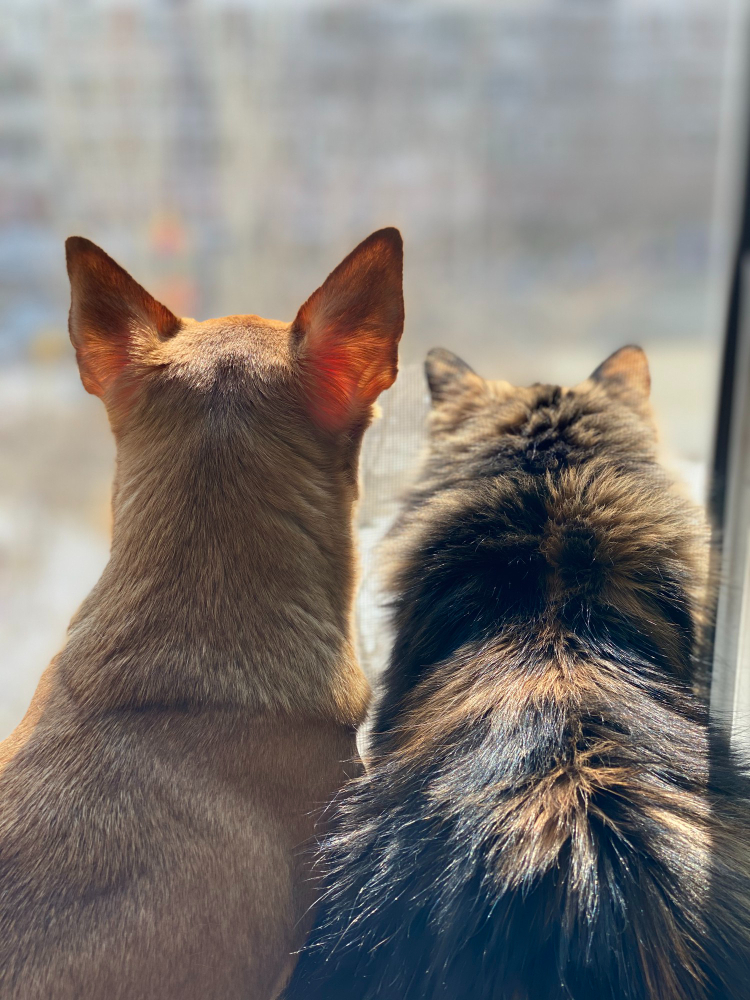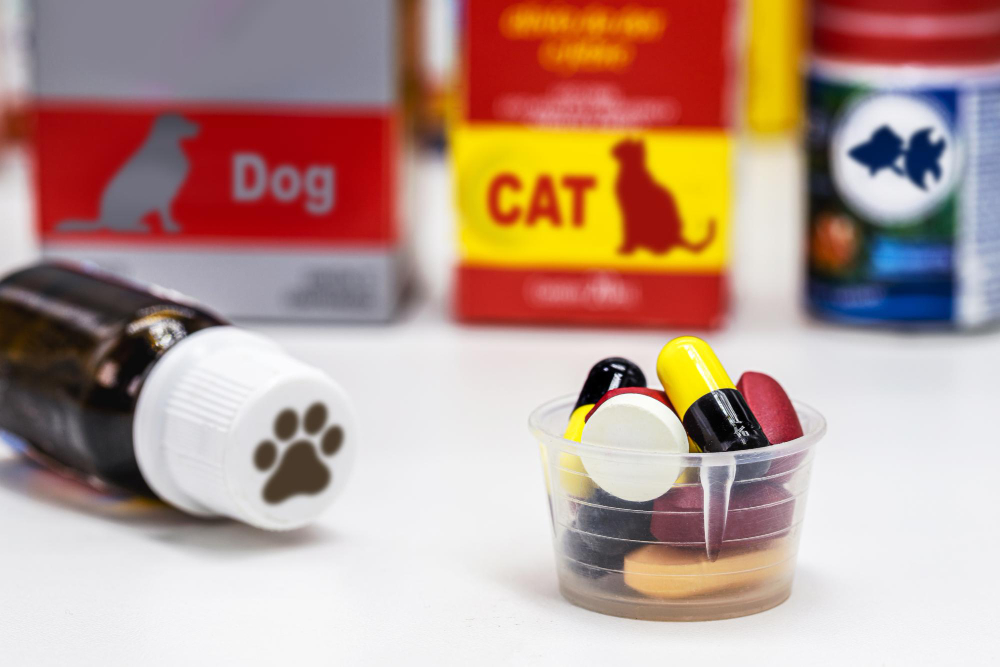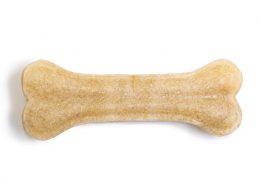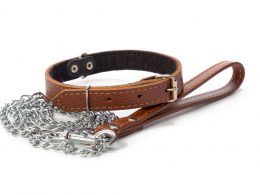Vitamins are vital organic molecules that play a crucial role in the well-being of all living organisms. They act as catalysts, accelerating chemical reactions and assisting in various functions like hormone synthesis, collagen formation, and calcium absorption. There are 13 types of vitamins, classified into two categories: water-soluble and fat-soluble. While water-soluble vitamins are excreted through urine when in excess, fat-soluble vitamins are stored in the body’s fat tissues.
In pet food, vitamins are present in the necessary amounts to meet the nutritional needs of dogs and cats. However, the question arises: do pets need multivitamin supplements? The answer is not as straightforward as marketing might suggest.
Multivitamins vs. Supplements: Clearing the Confusion
It’s common to find multivitamin products for pets, but supplementation is not always indicated. Some pet owners confuse the role of vitamins with food supplements. While vitamins are essential substances for the body, a supplement is an addition to food, which may or may not contain vitamins.
Vitamins and Their Functions in Pets
Vitamin A: An antioxidant that strengthens the immune system and protects the skin.
Vitamin C: Also known as ascorbic acid, it has antioxidant properties and facilitates collagen production.
Vitamin D: Essential for regulating calcium and phosphorus. Unlike humans, dogs and cats need vitamin D from their diet, as they cannot synthesize it from the sun.
Vitamin E: A powerful antioxidant that helps combat cell aging and prevent degenerative diseases.
B Complex Vitamins: This group includes various essential vitamins for metabolism, especially in the nervous and energy system.
Do Pets Need Vitamin Supplements?
For Dogs and Cats on Complete Feeds
Pets that feed on complete feeds generally do not need multivitamin supplements. However, in cases of absorption problems or vitamin deficiency, especially in elderly pets, supplementation may be necessary. For pets on a homemade or natural diet, supplementation is often suggested. To learn more about natural food for dogs, you can visit this article on homemade diets.
Understanding Multivitamin Supplementation
Multivitamin supplementation may be recommended for animals with nutritional deficiencies from an improperly supplied diet. To understand more about maximizing your dog’s health through different types of dog food, you can explore this informative article.
The Risks of Over-Supplementation
The excess of vitamins, also known as hypervitaminosis, can be a serious concern for pet owners. It typically occurs with fat-soluble vitamins, while with water-soluble vitamins, it’s complicated to happen because the excess is excreted through the urine. However, the consequences can be severe.
Excess Vitamin D: A very common example of hypervitaminosis is excess vitamin D, which causes hypercalcemia in dogs and cats when supplemented in excess. Since vitamin D acts in the regulation of calcium in the body, being responsible for calcium absorption in the intestine and deposition in the bones, hypercalcemia is caused by excess calcium in the blood. This disease can lead to a wide range of symptoms, including:
- Excessive Urination: The body tries to rid itself of the excess calcium.
- Excessive Thirst: A natural response to increased urination.
- Lack of Appetite: The pet may lose interest in food.
- Lethargy: A general feeling of tiredness or lack of energy.
- Vomiting: A reaction to the imbalance in the body.
- Constipation: Digestive issues related to calcium imbalance.
- Weakness: The pet may appear physically weak or unstable.
- Coma: In severe cases, the pet may fall into a coma.
There are stages of an animal’s life in which supplementation is necessary, such as for elderly animals that generally have a deficiency in nutrient absorption, pregnant and lactating females that need greater nutritional support, athletic animals that need more nutrient intake, animals rescued from the street that probably have some nutritional deficiency, and puppies that their mothers did not breastfeed. Therefore, only a trained professional in animal nutrition can indicate the correct supplementation with multivitamins.
Identifying Vitamin Deficiency in Pets
Vitamin deficiency, also referred to as avitaminosis, is the lack of essential vitamins required for the proper functioning of the body. This deficiency can occur due to poor absorption or insufficient vitamin intake through food. Here’s how to recognize some of the clinical signs that can affect animals in cases of deficiency:
Vitamin A Deficiency
- Rapid Weight Loss: The animal may lose weight quickly.
- Muscle Weakness: Lack of strength and energy in muscles.
Vitamin D Deficiency
- Skeletal Development Abnormalities: Particularly in puppies, leading to deformities.
- Progressive Paralysis: Loss of muscle function.
- Reduced Food Intake and Weight: The animal may eat less and lose weight.
- Vomiting and Lethargy: General signs of illness and fatigue.
Vitamin E Deficiency
- Anorexia: The animal may lose interest in food.
- Depression: Behavioral changes and lack of interest in activities.
- Sensitivity to Abdominal Pain: The pet may react strongly to touch in the abdominal area.
Vitamin B Complex Deficiency
- Reflex Changes: Unusual or exaggerated reflexes.
- Seizures: Uncontrolled shaking or convulsions.
- Anorexia: Loss of appetite.
- Weight Loss: The animal may lose weight.
- Lethargy: Lack of energy or enthusiasm.
- Diarrhea and Vomiting: Digestive issues.
Many of these clinical signs of vitamin deficiency are similar to other diseases and can be confused with other comorbidities. Therefore, it’s crucial to take your pet to the veterinarian at any clinical indication. Only a professional can make the correct diagnosis and, if necessary, indicate the use of a multivitamin in the right amount for your pet.
Conclusion
In the complex world of pet nutrition, understanding the role of vitamins is paramount for responsible pet ownership. Vitamins are essential for the overall well-being of our furry friends, but they must be administered with care and understanding. Whether it’s recognizing the signs of deficiency or avoiding the pitfalls of over-supplementation, a balanced approach guided by professional advice is key.
For those considering homemade or natural diets, supplementation may be necessary, and resources like homemade diets for dogs and understanding different types of dog food can be invaluable. However, the decision to supplement should never be taken lightly, as both deficiency and excess can lead to serious health issues.
In conclusion, the health and happiness of our pets depend on a nuanced understanding of their nutritional needs. By staying informed, consulting with trained professionals, and recognizing the signs of both deficiency and excess, pet owners can ensure that their beloved companions lead vibrant, healthy lives.














